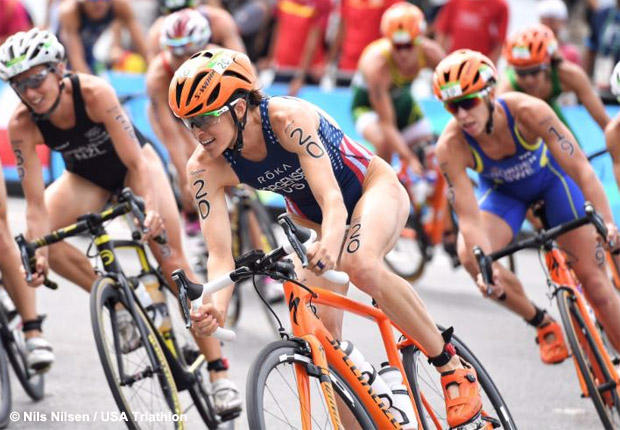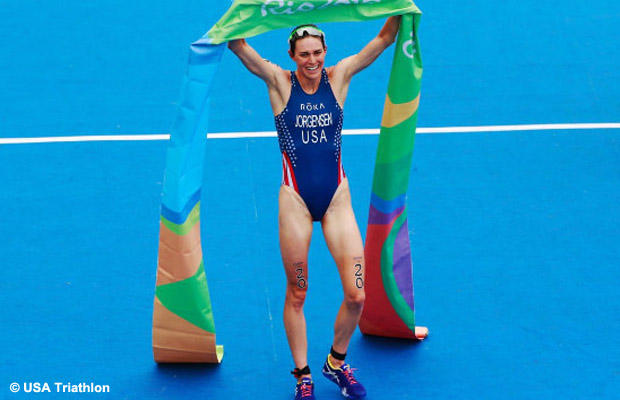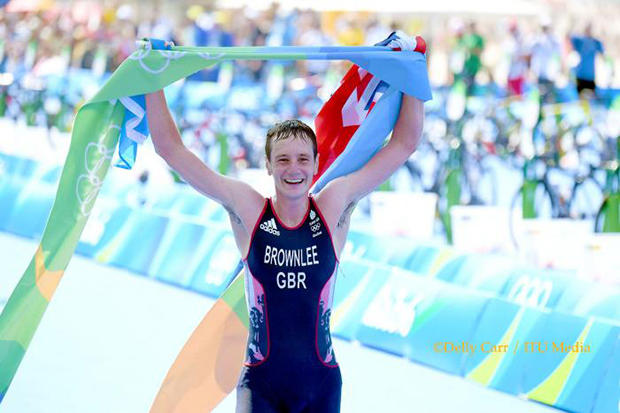Earn This!
I was looking down from the top of a hill on the finishing stretch of the Olympic cycling road race course. Not the Rio Olympics, but the Games held in Los Angeles in 1984.
Complicated, unpredictable 23-year-old Alexi Grewal attacked a leading group of 7 with fewer than 20 miles to go. Only Canadian Steve Bauer could follow him. Grewal’s attack was uphill and into the wind so, while successful, it seemed to rob him of all remaining energy. He readied for a 2-up finish with the powerfully-built Canadian who’d won his country’s last 3 national road championships.
As I looked down from that ridge toward the finishing straight, Bauer was in the lead. He’d started his sprint early and was the better road sprinter of the two. No one expected to see Grewal's countermove for the gold.

Grewal’s win came with several asterisks. In 1984 professional cyclists couldn’t ride in the Olympics and America’s best cyclist, Greg Lemond, had just finished 3rd in his inaugural ride of the Tour de France while in support of Laurent Fignon. That was also the Olympics that did not include athletes from any Eastern Bloc countries. Nonetheless, Grewal’s Olympic win combined with Connie Carpenter-Phinney’s win in the women’s road race, and Steve Hegg’s gold in the pursuit, transformed American cycling.
The bicycle market had been in steep decline since its sales peak in 1973. By 1982 sales of bikes in the U.S. with 20” or larger wheels had fallen by half, from 15.2 million units sold in ‘73 to 6.8 million in ‘82 (NBDA). By 1987 unit sales had rebounded to 12.6mm units. Grewal’s unexpected gold with Greg Lemond’s startling worldwide success in Europe were certainly catalysts.
Gwen Jorgensen has now won American gold in triathlon, and it could not have come at a better time for the U.S. triathlon market. After a stunning run-up in participation most industry observers feel the U.S. tri market peaked in 2012 and has been in decline since. Bicycle, run and tri markets always surge and ebb, and the tri market ebbed very badly between 1988 and 1998, losing more than half its participants by 1994. Then came a surge that lasted 14 years.
The fall-off in road and tri since 2012 is partly due to the Lance Armstrong saga and partly to the exhaustion of the triathlon surge that ran almost non-stop, and right through the economic crash of 2008, for 14 years. Almost no one in the triathlon industry in the U.S., from race organizers to retailers, thinks the market has done anything but increase until 2012, only to then steadily decline in the 4 years since.
Gwen Jorgensen won American gold in the triathlon in Rio. Is it 1984 again? Is it 1972 in running again, when Frank Shorter’s gold medal in the marathon is widely considered to have kick-started the running boom? (Joan Benoit’s Olympic marathon victory in ’84 inspired yet more women to run.)
Triathlon is trickier, because running and cycling, like skiing, tennis, golf, surfing, are not sports requiring a competitive expression. You can bike or run without racing. You can be inspired by an American win in the Olympic marathon, lace up some shoes, and go run. It’s hard to imagine someone becoming inspired by Gwen without turning to an event on the calendar. That event’s variables – its cost; the risk of the cost without a transfer/refund policy; the safety of the race; the fun and perceived value of the race; the ease of training; the cost of equipment; the community of athletes with which to train – are up to us to deliver.
Gwen’s gold will not reinvigorate triathlon all by itself. Gwen has done her part, but she doesn’t produce races. She doesn’t market the sport to corporations, exhorting them to bring triathlon into the workplace as HR and fundraising initiatives, employees participating as relay teams (triathlon’s gateway drug). Gwen is our touchstone, but we must crowdsource the outreach of triathlon on Gwen’s behalf. As long as she doesn’t trash any gas station bathrooms (knowing Gwen, I think we're safe) we can point to a great win and a great winner, and Gwen’s victory is ours to use or to lose.
When contemplating our sport’s proper response to Gwen Jorgensen’s victory in Rio the phrase that immediately came to my mind is Earn This. Gwen’s sacrifice, and her gift to us, was her work and her time, not her very life. But it was a sacrifice and it is a gift or, to put it another way, it is a gift offered. Will we receive or decline it? Receiving it requires a response from us. What will our sport’s clubs, manufacturers, retailers, consumers, coaches, governing bodies, do with this gift? Will we earn this?



